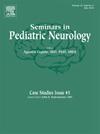Whole-tissue and autologous dendritic cell vaccines in pediatric brain tumors: A focused review of current evidence and future directions
IF 2.1
4区 医学
Q2 CLINICAL NEUROLOGY
引用次数: 0
Abstract
Introduction
Cancer immunotherapy is becoming increasingly personalized, and autologous therapeutic vaccines (ATVs) represent a promising strategy by leveraging patient-derived tumor antigens. Two main types, whole-tissue autologous therapeutic vaccines (WATVs) and autologous dendritic cell vaccines (ADCVs), have demonstrated safety and efficacy in adult oncology. However, their application in pediatric neuro-oncology remains underexplored.
Objective
To review recent clinical advancements in the use of WATVs and ADCVs for pediatric brain tumors, focusing on safety, feasibility, and preliminary outcomes.
Methods
A systematic search of studies (2004–2025) was conducted using PubMed, Scopus, EMBASE, Cochrane, and clinical trial registries. Inclusion criteria were pediatric brain tumor studies involving WATVs or ADCVs. Studies were assessed per PRISMA guidelines, biases were addressed and outcome data were synthesized narratively using pooled patient data.
Results
WATVs had no dedicated pediatric brain tumor studies. However, a subgroup analysis in a mixed ADCV-WATV trial for pediatric brain tumors (n = 26) was performed showing safety and feasibility. For ADCVs, seven clinical trials with (n = 85) met inclusion criteria. ADCVs demonstrated a strong safety profile, with no treatment-related deaths and only one severe adverse event. Progression-free survival ranged from 1.4 to 85.6 months, and overall survival ranged from 1.4 to 143 months. Factors improving outcomes included gross total resection and newly diagnosed high-grade gliomas. Production time for vaccines posed a feasibility challenge.
Conclusion
WATVs and ADCVs are safe but underutilized in pediatric neuro-oncology. ADCVs, in particular, have shown potential for high-grade gliomas and atypical teratoid rhabdoid tumors. Future studies should optimize vaccine production timelines and evaluate the efficacy of various antigenic materials. Phase III trials are needed to establish clinical benefit.
儿童脑肿瘤的全组织和自体树突状细胞疫苗:当前证据和未来方向的重点回顾
癌症免疫治疗正变得越来越个性化,而利用患者来源的肿瘤抗原的自体治疗性疫苗(ATVs)是一种很有前途的策略。两种主要类型,全组织自体治疗性疫苗(WATVs)和自体树突状细胞疫苗(adcv),已经证明在成人肿瘤治疗中的安全性和有效性。然而,它们在小儿神经肿瘤学中的应用仍未得到充分探索。目的综述WATVs和adcv治疗小儿脑肿瘤的临床进展,重点分析其安全性、可行性和初步疗效。方法采用PubMed、Scopus、EMBASE、Cochrane和临床试验注册数据库系统检索2004-2025年的相关研究。纳入标准是涉及WATVs或adcv的儿童脑肿瘤研究。根据PRISMA指南对研究进行评估,解决偏倚问题,并使用汇总的患者数据对结果数据进行叙述性综合。结果watvs没有专门的儿童脑肿瘤研究。然而,一项针对儿童脑肿瘤的ADCV-WATV混合试验(n = 26)的亚组分析显示了安全性和可行性。对于adcv,有7项临床试验(n = 85)符合纳入标准。adcv显示出很强的安全性,没有与治疗相关的死亡,只有一个严重不良事件。无进展生存期为1.4至85.6个月,总生存期为1.4至143个月。改善预后的因素包括大体全切除和新诊断的高级别胶质瘤。疫苗的生产时间对可行性提出了挑战。结论watvs和adcv在小儿神经肿瘤治疗中是安全的,但未得到充分利用。特别是ADCVs,已经显示出高级别胶质瘤和非典型畸胎瘤样横纹肌样肿瘤的潜力。未来的研究应优化疫苗生产时间表,并评估各种抗原材料的功效。需要III期试验来确定临床效益。
本文章由计算机程序翻译,如有差异,请以英文原文为准。
求助全文
约1分钟内获得全文
求助全文
来源期刊

Seminars in Pediatric Neurology
CLINICAL NEUROLOGY-PEDIATRICS
CiteScore
4.80
自引率
0.00%
发文量
38
审稿时长
84 days
期刊介绍:
Seminars in Pediatric Neurology is a topical journal that focuses on subjects of current importance in the field of pediatric neurology. The journal is devoted to making the status of such topics and the results of new investigations readily available to the practicing physician. Seminars in Pediatric Neurology is of special interest to pediatric neurologists, pediatric neuropathologists, behavioral pediatricians, and neurologists who treat all ages.
 求助内容:
求助内容: 应助结果提醒方式:
应助结果提醒方式:


